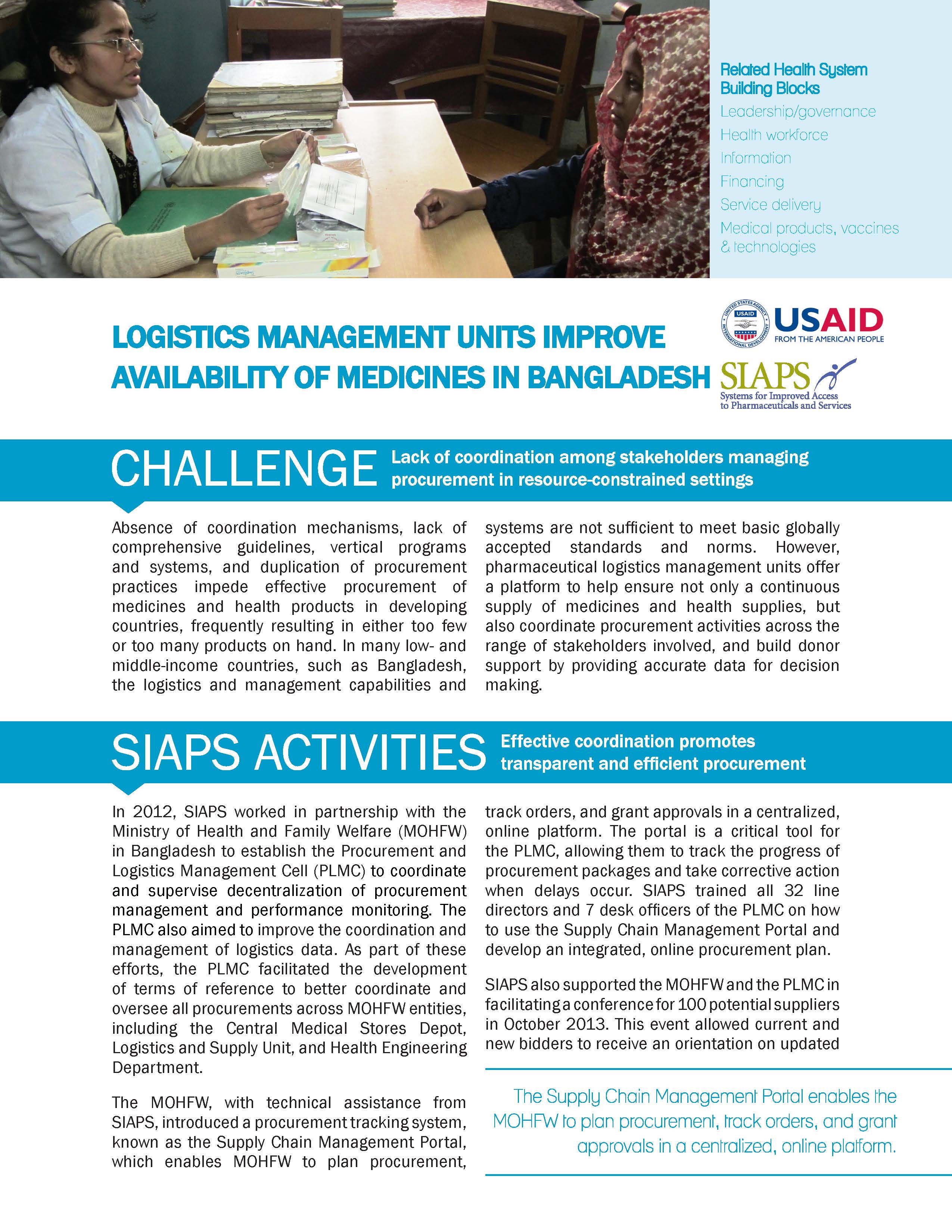
Absence of coordination mechanisms, lack of comprehensive guidelines, vertical programs and systems, and duplication of procurement practices impede effective procurement of medicines and health products in developing countries, frequently resulting in either too few or too many products on hand. In many low- and middle-income countries, such as Bangladesh, the logistics and management capabilities and systems are not sufficient to meet basic globally accepted standards and norms. However, pharmaceutical logistics management units offer a platform to help ensure not only a continuous supply of medicines and health supplies, but also coordinate procurement activities across the range of stakeholders involved, and build donor support by providing accurate data for decision making.


